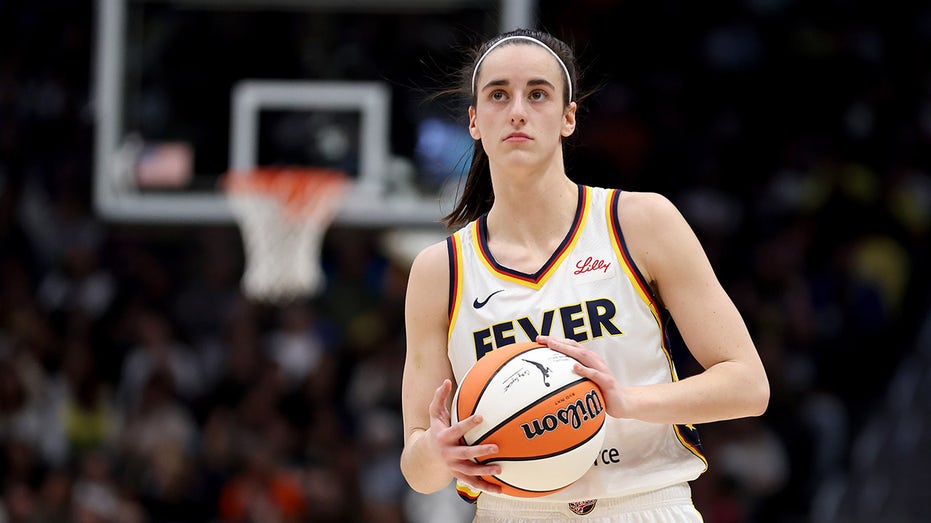In the world of sports, the ability to connect with fans often transcends the games played on the court or field. For Caitlin Clark, a rising star in women’s basketball, her appeal to young fans is rooted in her identity as a “white girl from the middle of America.” This perspective, highlighted by various sports commentators, including an insightful analysis from an ESPN pundit, sheds light on how Clark’s background contributes to her popularity among the youth as well as the broader sports community.
The commentary on Caitlin Clark’s rise in the sport has gained traction, particularly during her remarkable performances in NCAA tournaments. In this age of increasing diversity and representation in athletics, Clark’s persona stands out. She embodies a unique blend of relatability and talent that resonates with fans who see themselves in her story. Her accomplishments have sparked discussions on how authenticity plays a vital role in connecting with younger audiences.
The ESPN pundit emphasized that Clark’s geographic and cultural background is an essential component of her story. Growing up in the Midwest, particularly in places like Iowa, has endowed her with a strong sense of community values. Many young fans from similar backgrounds find a sense of belonging in her journey. They appreciate her struggle, determination, and humility — traits that are often emphasized in American heartland narratives. This connection not only makes her performances exciting to watch but also makes her a role model for young athletes grappling with their paths in sports.
Sports inherently showcase stories of struggle and triumph, and Caitlin Clark’s narrative is no exception. As she rose through the ranks of high school basketball in Iowa, her work ethic and dedication were evident. Young athletes from smaller towns who have similar dreams see Clark’s story as attainable. She breaks the stereotype of needing to come from a big city or a powerhouse program to achieve greatness, thereby instilling hope in her fans.
Moreover, her charisma on and off the court further enhances her appeal. Clark’s open manner in expressing her thoughts and feelings resonates with her audience, many of whom communicate their aspirations and challenges similarly. The ESPN analyst notes that this level of relatability is critical; in a world filled with polished celebrity images, Clark offers a refreshing and down-to-earth perspective. Young fans appreciate seeing someone who reflects their own experiences and emotions, breaking barriers that often isolate young female athletes in a predominantly male sports environment.
As her visibility grows, Caitlin Clark’s influence extends beyond just basketball. She is shaping conversations about women in sports, particularly in how young female athletes view themselves in a competitive landscape that can sometimes feel daunting. By representing a segment of the population that champions hard work and perseverance, she is instrumental in advocating for increased recognition of women’s sports, creating pathways for future generations of female athletes.
This ‘Midwest girl’ vibe also offers her an edge in an era where social media can often warp self-image and amplify anxiety among youth. Clark’s relatability allows her to present as an authentic figure in sports, contrasting the often curated lifestyles of professional athletes. This authenticity fosters a deeper connection with her young followers, who may feel alienated by traditional sports narratives that don’t reflect their realities.
Furthermore, Caitlin Clark’s journey adds to discussions about diversity in sports representation. Modern audiences are increasingly drawn to athletes whose stories challenge conventional norms, and Clark does just that. She is not just a player who excels on the court; she is a representation of an emerging narrative where acceptance comes from a combination of talent and authenticity. As her visibility expands, she becomes an essential player in advocating for equitable treatment and recognition of women in sports.
One could argue that Caitlin Clark is more than just an athlete; she is a symbol of a movement that encourages passionate engagement with the sport while simultaneously promoting inclusivity. Her presence draws attention not only to women’s basketball but also to the societal shifts needed in sports culture regarding young female athletes. With growing support, we may see increases in female participation rates in sports programs, inspired by the likes of Clark, who embodies the potential inherent in all young athletes.
As we observe Caitlin Clark continues to shine, the question remains: what does her story mean for the future of women’s sports? Each game she plays is not merely a competition; it represents a chance to inspire, to promote, and to empower young fans watching from the stands or on their screens. As her journey unfolds, it’s crucial to acknowledge the unique dynamics of her identity and how they enhance her role as a leader in the sports community.
In conclusion, Caitlin Clark’s rise as a premier athlete is a showcase of how personal narrative and background can forge deep connections with fans, especially young women trying to find their footing in various arenas of life. The ESPN pundit’s reflections reveal a broader truth within sports: athletes like Clark remind us that behind each player’s talent lies a rich story of resilience and authenticity, one that speaks volumes to a generation eager for relatable role models.
As Clark continues to etch her name into the history books of women’s basketball, the allure of her identity as a “white girl from the middle of America” will likely remain an essential part of her story. She exemplifies the power of sports to create bonds across diverse backgrounds, fostering a sense of belonging that is incredibly vital in today’s complex world. The journey thus far is merely a prelude to what can be a transformative era in women’s sports, with Caitlin Clark leading the way.
































